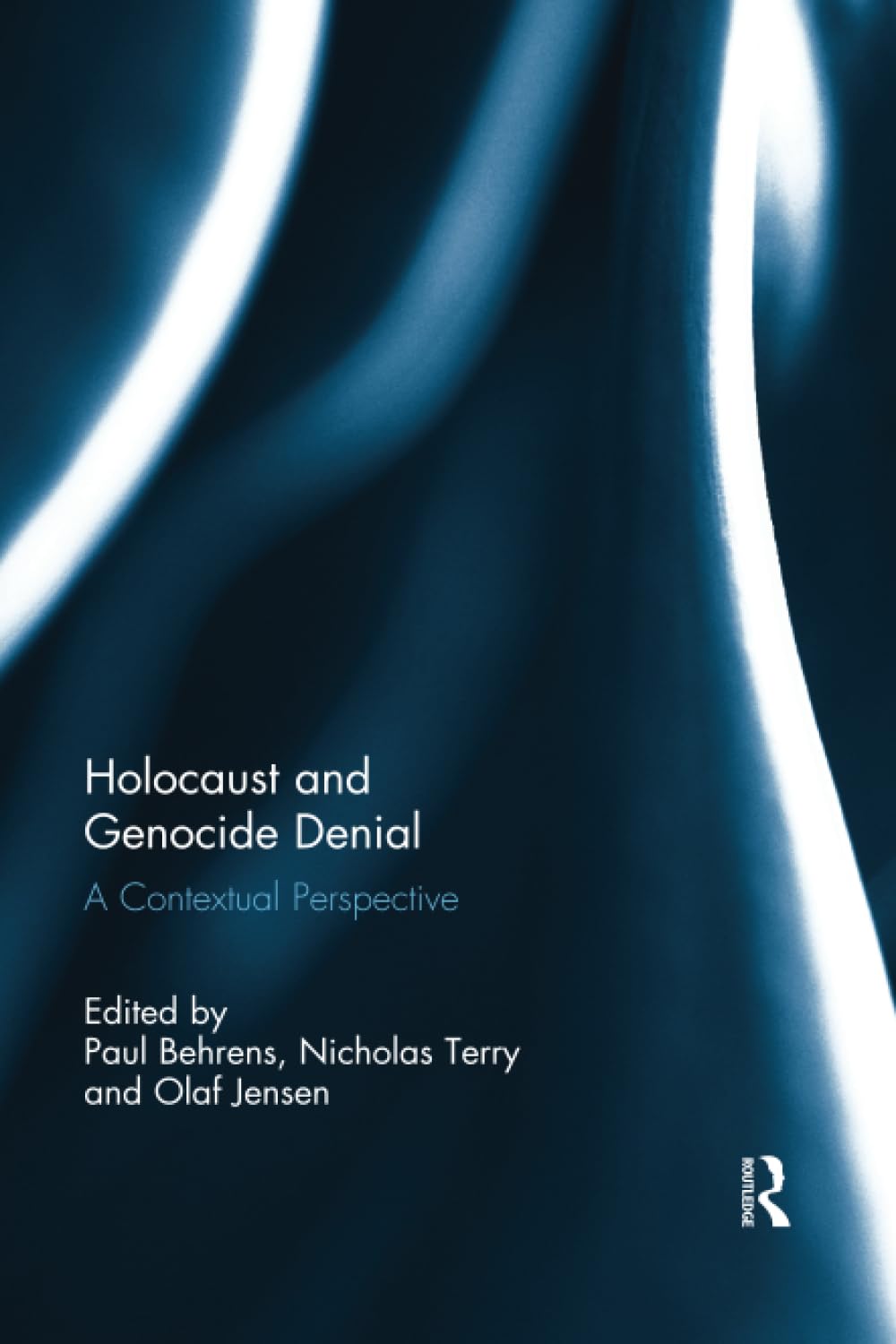Holocaust and Genocide Denial: A Contextual Perspective
Holocaust and Genocide Denial: A Contextual Perspective is backordered and will ship as soon as it is back in stock.
Couldn't load pickup availability
Genuine Products Guarantee
Genuine Products Guarantee
We guarantee 100% genuine products, and if proven otherwise, we will compensate you with 10 times the product's cost.
Delivery and Shipping
Delivery and Shipping
Products are generally ready for dispatch within 1 day and typically reach you in 3 to 5 days.
Book Details
-
Publisher: Routledge
-
Author: Behrens, Paul
-
Language: English
-
Edition: 1
-
ISBN: 9780367024253
-
Pages: 275
-
Cover: Paperback
-
Dimensions: 9.1 x 6.1 x 0.7 inches
About the Book
Holocaust and Genocide Denial: A Contextual Perspective by Paul Behrens offers a comprehensive analysis of one of the most challenging and widespread phenomena confronting criminal justice systems globally: the denial of mass atrocities. This book explores the revisionist views and outright denials of historical events such as the Holocaust and other genocides, shedding light on the broader implications for history, law, and politics.
The book addresses the complexities denial poses to various academic disciplines, particularly historians, legal scholars, and political scientists. It discusses how the disappearance of eyewitness generations poses a challenge to keeping the memory of atrocities alive and the need to distinguish between genuine historical scholarship and revisionist narratives disguised as legitimate academic work.
Legal scholars and practitioners are challenged with navigating the boundaries of freedom of speech while upholding the rights of victims. Furthermore, the book questions whether legal measures can effectively address revisionism and its movements. Holocaust and Genocide Denial breaks new ground by examining the history of denial, the methods devised by states to counter it, and the rationale behind their strategies.
Contributing authors, with expertise in Holocaust history, genocide studies, international criminal law, and social anthropology, offer insights into the evolution of revisionism and provide thought-provoking discussions on its treatment in law and politics. This book is an essential resource for anyone interested in the intersection of history, law, and memory in the context of mass atrocities.







